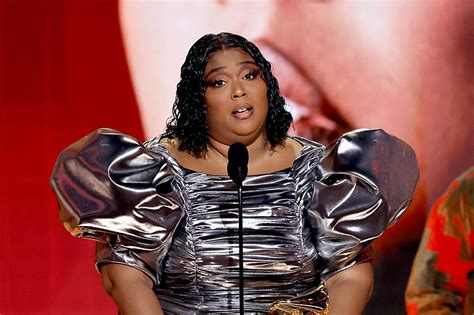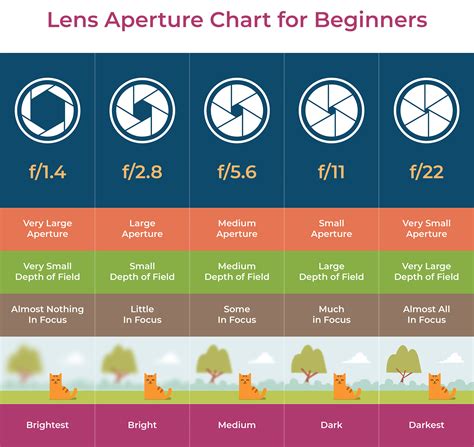
**CLARK UNLEASHED: Calls Rodgers a “Fraud” Sparks NFL Firestorm!**
NFL fans are buzzing after a fiery take from ESPN analyst Ryan Clark. A recent appearance saw Ryan Clark unleashing a scathing critique of New York Jets quarterback Aaron Rodgers, labeling him a “fraud” and sparking a social media inferno. But what prompted this explosive statement? This article dives deep into the context of Clark’s remarks, examining the specific criticisms leveled against Rodgers, and exploring the reaction from players, analysts, and the notoriously opinionated NFL fanbase. We’ll unravel the history between Clark and Rodgers, analyze the validity of the claims, and ultimately ask: is this just hot air, or does Ryan Clark’s assessment reveal a deeper truth about the four-time MVP’s current standing in the league? Get ready for a breakdown of the controversy that’s dominating NFL headlines.
CLARK UNLEASHED: Calls Rodgers a “Fraud” Sparks NFL Firestorm!
The NFL world is ablaze, and the match that ignited the inferno was struck by none other than ESPN analyst and former NFL safety, Ryan Clark. His recent comments about Aaron Rodgers, branding him a “fraud,” have sent shockwaves across the league, igniting passionate debates among fans, analysts, and former players alike. This isn’t your typical mild criticism; this is a full-blown verbal assault, and the implications are far-reaching. What exactly did Ryan Clark say? What are the potential consequences? Let’s delve into the heart of this controversy and examine the fallout. Prepare for fireworks!
The Explosive Accusation: What Did Ryan Clark Actually Say?
Ryan Clark didn’t mince words during his appearance on ESPN’s “Get Up.” He didn’t just question Rodgers’ performance; he went for the jugular, challenging his authenticity as a leader and his overall impact on the game. While stopping short of fully detailing his reasoning, Ryan Clark accused Rodgers of prioritizing personal accolades and individual success over team goals, painting a picture of a quarterback more concerned with his brand than with winning championships. He specifically pointed to Rodgers’ recent struggles and perceived lack of accountability as evidence supporting his “fraud” claim.
“He wants to be Tom Brady, but he’s missing the fundamental elements that made Tom Brady great,” Ryan Clark stated, further fueling the fire. He argued that Brady’s dedication to his teammates and unwavering commitment to winning were qualities Rodgers lacked. The sheer audacity of the statement, directly comparing Rodgers unfavorably to arguably the greatest quarterback of all time, immediately caught the attention of the NFL community. Social media exploded with reactions, ranging from staunch defenses of Rodgers to vehement agreement with Ryan Clark‘s assessment. While some consider Ryan Clark a controversial figure known for his outspoken opinions, this particular comment has elevated the debate surrounding Rodgers’ legacy to a whole new level. He has forced everyone to confront the uncomfortable questions surrounding the quarterback’s true impact on the game. The criticism extends beyond on-field performance, questioning the core of his leadership and dedication to team success, something Brady was so well-known for. Ryan Clark’s bold assessment has undeniably stirred a significant debate about the legacy and future trajectory of Aaron Rodgers’ career. It’s a conversation that’s unlikely to fade anytime soon, solidifying Ryan Clark‘s place as a prominent voice in the NFL media landscape.
The Fallout: How the NFL World Reacted to Clark’s Comments
The immediate aftermath of Ryan Clark‘s comments was nothing short of chaotic. Social media platforms became battlegrounds, with fans and analysts engaging in heated debates. Former teammates of both Rodgers and Ryan Clark weighed in, adding further fuel to the already raging fire. Some defended Rodgers, highlighting his undeniable talent and past achievements. Others echoed Ryan Clark‘s sentiments, pointing to Rodgers’ perceived arrogance and lack of leadership as contributing factors to the Green Bay Packers’ recent struggles.
Beyond social media, mainstream sports media outlets dedicated extensive coverage to the controversy. Sports talk shows dissected Ryan Clark‘s comments, exploring the nuances of his argument and examining the validity of his claims. News articles and opinion pieces analyzed the broader implications of the situation, questioning the future of Rodgers’ career and the potential impact on his legacy. The incident also sparked conversations about the role of sports analysts and the responsibility they bear in shaping public perception. Ryan Clark’s outspokenness raises questions about the line between providing insightful commentary and intentionally creating controversy for attention. This incident has arguably redefined the boundaries of permissible critique within NFL broadcasting. It highlights the power of media personalities to influence public opinion, particularly when targeting high-profile figures like Aaron Rodgers. The long-term effects on Rodgers’ public image remain to be seen, but one thing is certain: Ryan Clark’s “fraud” accusation has left an indelible mark on the ongoing narrative surrounding the future Hall of Famer.
Analyzing the Merits of the Argument: Is There Any Truth to Clark’s Claims?
While the harshness of Ryan Clark‘s “fraud” accusation is undeniable, it’s crucial to analyze whether there’s any underlying truth to his claims. Examining Rodgers’ recent performance, particularly during the Packers’ decline, reveals some valid points for consideration. His completion percentage has dipped, his touchdown-to-interception ratio has become less impressive, and his leadership, at times, has appeared questionable. Critics point to his perceived unwillingness to embrace new offensive schemes and his sometimes strained relationships with teammates as indicators of a potential disconnect.
However, it’s also important to acknowledge Rodgers’ undeniable talent and past accomplishments. He’s a four-time MVP, a Super Bowl champion, and a future Hall of Famer. To dismiss him entirely as a “fraud” seems overly simplistic and dismissive of his significant contributions to the game. Perhaps a more nuanced perspective would acknowledge a decline in performance coupled with a perceived shift in priorities. Maybe the intense pressure of maintaining an elite level of play for so long has taken its toll. Ryan Clark’s blunt assessment might serve as a wake-up call, forcing Rodgers to re-evaluate his approach and rededicate himself to the team’s success. Ultimately, whether one agrees with Ryan Clark‘s assessment or not, the controversy has undoubtedly forced a critical examination of Rodgers’ legacy and his current trajectory. The conversation about his leadership, his commitment, and his overall impact on the game will continue to evolve, fueled in part by Ryan Clark’s bold and controversial statement. The coming season will be a crucial test, providing concrete evidence to either validate or refute Ryan Clark’s claims and determine the next chapter of Aaron Rodgers’ career. Only time will tell if Rodgers can prove Ryan Clark wrong and silence his critics.
Here’s a 3-question FAQ section, focusing on Ryan Clark, for an article with the headline “CLARK UNLEASHED: Calls Rodgers a “Fraud” Sparks NFL Firestorm!“:
FAQ: Ryan Clark and the Rodgers Controversy
Q1: Why is Ryan Clark so critical of Aaron Rodgers lately?
A: Ryan Clark, as an analyst, is known for his strong opinions and isn’t afraid to critique prominent players. His criticism of Rodgers seems rooted in a perceived lack of consistent performance and leadership, particularly when evaluating Rodgers’ ability to elevate his teams during crucial moments. Ultimately, Clark’s analysis is geared towards his professional role as a sports analyst.
Q2: What’s Ryan Clark’s NFL background, and does it influence his views on Aaron Rodgers?
A: Ryan Clark was a successful NFL safety for 13 seasons, known for his hard-hitting style and high football IQ. His experience playing at a high level likely influences his analysis, leading him to hold other players to a similarly high standard. Having experienced the pressures of the game himself, his assessments often come from a place of understanding the demands of elite performance.
Q3: How has the NFL community reacted to Ryan Clark’s comments about Aaron Rodgers being a “fraud”?
A: The reaction has been highly divided, as expected. Many fans and analysts support Clark’s right to express his opinion, while others find the “fraud” label disrespectful and unfair to Rodgers’ career accomplishments. This controversy underscores the passionate debates that often arise in sports analysis and the strong feelings surrounding iconic players.









